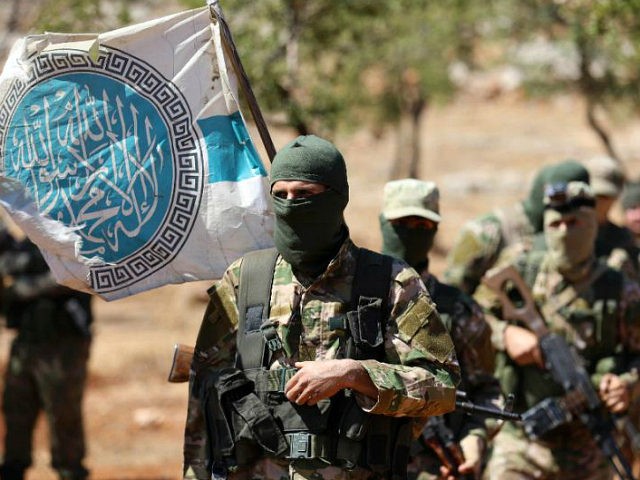The highest-ranking military officer in the United States military met his Turkish counterpart in Washington, DC, this week to discuss security in Syria’s Manbij area as well as joint efforts to annihilate the resilient Islamic State (ISIS/ISIL) presence in the region, the Pentagon announced.
U.S. Gen. Joseph Dunford Jr., spoke to Chief of the Turkish General Staff Gen. Yasar Guler as al-Qaeda terrorists and other jihadists failed to meet Monday’s withdrawal deadline as part of a deal between Ankara and Moscow to establish a demilitarized zone in Syria’s Idlib region.
Referring to the meeting between the two NATO allies the United States and Turkey, the Pentagon noted:
The two leaders continued their discussion on security and stability in Manbij. They also discussed the importance of continued U.S.-Turkish cooperation on counterterrorism efforts to ensure the lasting defeat of ISIS. The U.S. and Turkey enjoy a strong and continuous strategic military-to-military relationship as key members of the NATO alliance.
Guler is reportedly expected to attend the U.S.-based Counter-Violent Extremist Organization Conference in the U.S.
The meeting between Dunford and Guler comes after Turkish President Recep Tayyip Erdogan suggested last week that the United States had delayed the agreement, stressing that the deal is “not completely dead.”
Turkey and its allies in Syria have repeatedly accused the United State of delaying the Kurdish People’s Protection Units (YPG), from Manbij as part of the deal.
Nevertheless, the Gen. Joseph Votel, the top U.S. commander in the Middle East, told reporters early this month:
My understanding is that most of the YPG, if not all of the YPG, is out of Manbij right now. But, of course, as we continue in implementing the roadmap, there are specific activities within that to ensure that that is the case. And I think that will occur in due course as we continue to implement the implement the roadmap.
America’s ongoing support for the YPG in the fight against ISIS has infuriated Turkey and strained the relationship between Ankara and Washington. Ankara considers the YPG to be an extension of the Kurdistan Worker’s Party (PKK) terrorist group that is waging a deadly insurgency on Turkish soil.
In May, Turkey and the United States reached the deal to pull out the YPG from Manbij.
The agreement is intended to reduce tensions between fighters from the YPG-led Syrian Democratic forces and Turkish-allied opposition fighters.
Turkish and American forces have already begun training to conduct joint patrols in Manbij as part of the deal, according to the Turkish defense minister.
Elsewhere in Syria, a separate agreement between Syrian dictator Bashar al-Assad’s ally Turkey and pro-opposition Turkey in the al-Qaeda stronghold of Idlib province, has hit a roadblock.
Al-Qaeda terrorists and other jihadis were expected to withdraw from Idlib by Monday, but have refused to do so.
The Agence France-Presse (AFP) agency reported:
Russia and Turkey said Tuesday their deal to set up a buffer zone for the last major Syrian rebel bastion of Idlib was still on course, despite jihadists missing a deadline to withdraw.
The agreement, reached by key powerbrokers Moscow and Ankara last month, gave “radical fighters” until Monday to leave a horseshoe-shaped area around Idlib intended to separate government from opposition forces.
But jihadists have held their ground, with a monitoring group saying Tuesday there were still “no signs” of an evacuation.
The al-Qaeda-linked jihadi coalition Hayat Tahrir al-Sham (HTS) and other hardliners refused to leave “gave Ankara a powerful slap,” the pro-government daily Al-Watan reported Tuesday, according to AFP.
“It puts the agreement on the edge of the abyss and provides the justification for the Syrian army and Russian air force to start a military operation to oust (HTS) from the area,” the newspaper noted.
Ankara reportedly requested “more time to influence HTS jihadis refusing the deal,” which is supposed to avert an Assad military offensive that the United Nations believes would trigger the “worst humanitarian catastrophe” of the 21st century.
Under the agreement, Russia and Turkey are expected to conduct joint patrols along the buffer zone’s perimeter, eliminate jihadist groups, withdraw heavy weapons, and implement a ceasefire between opposition forces and pro-Assad troops.

COMMENTS
Please let us know if you're having issues with commenting.